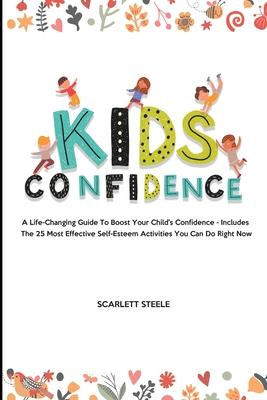What are the signs of low self-esteem in a child?
What destroys a child's confidence?
How do I change my child's negative mindset?
Throughout this book we will look at a wide variety of factors that influence self-esteem. Along with defining exactly what it is, we will look at why it is so important. We will also break it down and look at the various life stages that children go through and how self-esteem is important, and developed, during each of these stages. After you finish this book you be able to identify unhealthy self-esteem, as well as how to help build a healthy self-esteem in children.
The skills you learn in this book are not only helpful in the home, but anywhere that you may be around children. But it doesn't stop there, because the same basic principle can be applied to adults as well. So if you, or other adults you know, could use a boost in self-esteem, you can adapt these skills to the adult level and apply them in order to help address the situation.
In the field of psychology, self-esteem is an important buzz word that is often used. That's because one's self-esteem plays such a significant role in people's lives. A healthy level of self-esteem is linked to a higher level of confidence, as well as self-respect. Having both of these will usually help people in life, because they will make better choices and be better able to handle many of life's challenges.
When people lack self-esteem it can lead to a host of problems. Children who lack a good sense of self-esteem may lack such things as:
- A sense of independence
- Being able to adequately express their emotions
- Assuming responsibility for their actions
- Positive social involvement
- Difficulty accepting compliments from others
- Expecting very little out of one's self or out of life
- Being able to trust one's opinions
- Not being able to properly handle peer pressure
- Healthy relationships with others
Additionally, researchers have found that those with low self-esteem are more prone to developing such things as eating disorders, as well as a range of mental health issues, such as depression.
When it comes to the self-esteem of children, parents play the biggest role in helping to develop it. However, many parents may have difficulty helping their children to have a healthy self-esteem, simply because they may lack it themselves, or they may not know what it is that they need to do in order to help their child develop it.
Do you want to know more?
Then Scroll up, click on "Buy now with 1-Click", and Get Your Copy Now!
